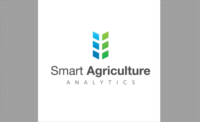
U.S. Dairy Policies Should Be Pro-Exports, Not Anti Imports
Rallying dairy farmers in opposition to imports of dairy products has been a focus of many politicians and often a means of energizing farmers to become active in political and legislative affairs.
But the conditions that made this strategy a staple of
dairy debates have shifted dramatically. Dairy farmers and most
manufacturers will do far better by increasing exports than by fighting
imports.
In 2002, the fear of increased dairy imports led to
contentious debates during consideration of the Farm Bill. But now, just
five years later, U.S. dairy exports have doubled while imports are
declining. Even more importantly, dairy exports are likely to continue to
grow — indefinitely and by significant amounts. These facts call out
for clear, consistent, pro-export policies as opposed to the anti-import
efforts of the past.
Dr. Ken Bailey, associate professor of agricultural
economics at Penn State, has estimated the total amount of dairy solids
imported and exported since 2001, the year before the 2002 Farm Bill. His
data, which confirms this pattern of soaring exports and declining imports,
supports these arguments for new, export-oriented dairy policies.
The policies necessary to continue this positive trend
are in stark contrast to some of the unfortunate proposals before the
Congress this year, including the Dairy Import Assessment. This proposal
would impose a 15-cent per hundredweight equivalent assessment on all
imported dairy products, which would go to the dairy farmer national
advertising program. The groups overseeing the program would gain about $12
million with the import assessment, but would place at risk the $1.89 billion of dairy exports,
which could double or triple in the next five years.
The Dairy Import Assessment was passed in 2002, but
the law required the Bush administration to implement the new law only if
it was consistent with our international trade obligations. The
administration found the new law violated U.S. trade commitments and,
therefore, it was not implemented. New proposals have been offered that
claim to bring the assessment into compliance with WTO obligations, but
other serious trade issues remain.
Under WTO rules, countries harmed by this new tax
would have the right to challenge its imposition. If a WTO panel upholds
the challenge, the U.S. dairy industry could be subject to retaliatory
tariffs that would cut off access to the very markets that are the
principal source of growth for our industry. This is the type of
consequence that would not have caused significant harm in past years since
the export market represented a comparatively smaller part of total dairy
farm revenue. In order to be sure the industry can seize all of its
opportunities abroad, we must be more attuned to these new realities.
Policies to build unsubsidized exports will pay the
greatest dividends for U.S. dairy farmers and manufacturers. The Dairy
Import Assessment, and other policies like it, put critical export markets
at risk without delivering any meaningful benefit to U.S. dairy farmers.
U.S. dairy policies should focus on growing export
opportunities rather than counterproductive efforts to restrict imports.
Tip Tipton, chairman and chief executive officer of
the Washington, D.C.-based Tipton Group, is the former CEO of the
International Dairy Foods Association.
$OMN_arttitle="U.S. Dairy Policies Should Be Pro-exports Not Anti Imports";?>
$OMN_artauthor="";?>
